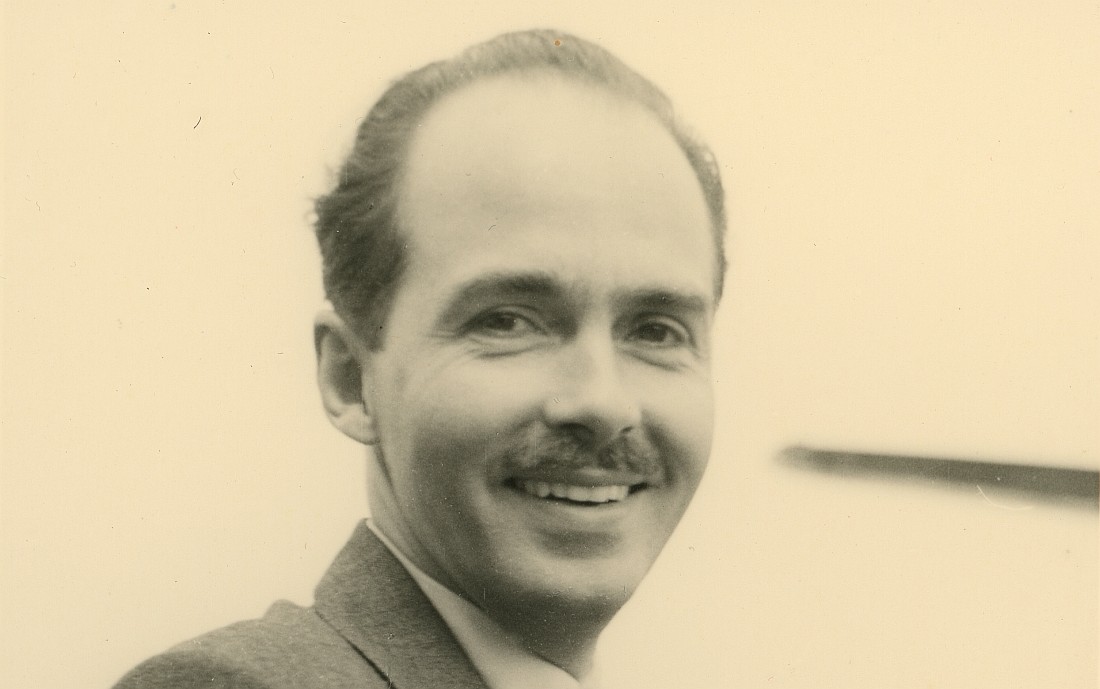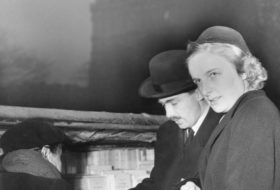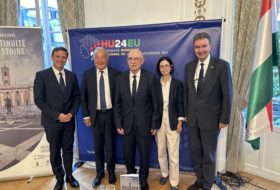“What separates us Europeans is much less important than what unites us. We are bound together by our history, our religious beliefs, our culture, our economic structure and the constant realities of well-defined politics – in short, everything that matters in the lives of nations”
On January 11, 1952, the same day that the Bundestag ratified the European Coal and Steel Community, based on the Schuman Plan and established by the Treaty of Paris,[1] Otto von Habsburg gave a powerful lecture in Paris on the situation of the Old Continent. The thoughts above were conveyed in the speech.
“…only a strong nation, only a strong continent has a chance of survival, one that sacrifices the comfort of the moment for the great national needs of defence.”
As a member of the Pan-European Movement, the former Crown Prince committed himself to the cause of European integration as early as 1936. In the Cold War era following the Second World War, he considered it particularly important that those involved in the gradual construction of Western Europe should not forget the people stuck behind the Iron Curtain. It was not the first time on 11 January 1952 that Otto von Habsburg spoke of his concept of unity for our continent. In September 1951, he expressed his views at a meeting of the Bavarian Abendlandische Aktion in the castle of Zeil, and later that year, he analysed the issue at a French Economic Geographical Society meeting as well.[2] There he said: “As soon as the security of Western Europe is guaranteed, the continent’s unification must be promoted with all possible force. After all, the Western Union only makes sense if it is the Piedmont [a.k.a. precursor] of real European unity .”[3]
German and French – mainly Catholic federalist – circles were keen to invite Otto von Habsburg to express his thoughts on the unity of Europe.However, his speech on 11 January 1952 was addressed to a broader audience and contained a well-developed concept. The lecture took place in Paris at the very prestigious Cercle de l’Union interalliée club. It is located in the Hôtel Perrinet de Jars, in the eighth arrondissement of the French capital at 33, rue Faubourg-Saint-Honoré. The building is an imposing 18th-century palace which housed the Russian Empire’s embassy in France from 1849 to 1864, then became the property of the Rothschild family. In 1917, it was purchased by the newly established Cercle de l’Union interalliée club, which was founded to promote solidarity among the nations of the Entente, and it has remained in its ownership to this day.
“Nothing in politics is more dangerous than an artificial solution imposed solely by force.”
Otto von Habsburg prepared for the occasion in earnest. He had written his text in advance and sent it to a close friend, Professor Paul Lesourd.[4] The historian, writer and publicist, who was teaching at the Institut Catholique in Paris, found the lecture so thought-provoking that he suggested that it should be published in print. Lesourd was one of the founders and then Secretary General of the Comité international de défense de la civilisation chrétienne (International Committee for the Defence of Christian Civilisation) and proposed it as a publisher. Otto von Habsburg was all the more pleased with the idea because the Comité had been set up in protest against the arrest and conviction of the Hungarian Archbishop Cardinal József Mindszenty under the chairmanship of the Belgian Foreign Minister Paul van Zeeland.
HOAL662-small
The small booklet, published in 250 copies,[5] of which our Foundation has serial number 163, helped to bring Otto von Habsburg’s ideas to a broader audience; the lecture itself was attended by several later prominent French public figures and political refugees from Central Europe. We do not have a precise list of participants; however, the Fédération (the French federalist movement), being an organisation independent of political party sympathies, has counted among its members François Mitterrand, Antoine Pinay, René Coty, Maurice Schumann, Henry Petiot (alias Daniel-Rops) or Gabriel Marcel.
Otto von Habsburg also sent the script of his lecture to György Bakách-Bessenyey (former ambassador to Bern, head of the Hungarian National Commission for Foreign Affairs in New York) and asked for his opinion. He also indicated that he had used an article by the emigrant politician published in the newspaper Hungária.[6]
“The truly great statesmen of history have always been those who made lasting peace in the world, who knew how to limit their victories wisely.”
In his lecture in Paris, Otto expressed his thoughts on Europe for the first time in front of a large audience. This speech served as a guideline for the subsequent years of his life whenever he spoke about the future of the Old Continent. Otto stressed the importance of reclaiming the natural frontiers of Western civilisation and the need to prepare for the challenges that this would entail. He underlined that the Stalinist empire had gone far beyond Russia’s traditional borders, thus threatening the very existence of Europe. Otto von Habsburg pointed out that the construction of Western Europe should not be self-serving and could only be fulfilled if it is prepared for ‘real’ European unity, namely the long-term integration of the Central and Eastern European region. He stressed that Western civilisation must not settle for maintaining the Cold War status quo, which could lead even to the disappearance of Europe. The Old Continent, he argued, should not expose itself to either the Russian Empire or the United States but should regain its role and leeway in world politics by promoting unity.
Almost forty years prior to the collapse of the Soviet Union, Otto von Habsburg envisioned that the moment would come when the integration of Central and Eastern Europe would be necessary because if that were not achieved, all Western efforts would be in vain. He thought that the West must be able to sacrifice its comfort in order to preserve European civilisation. The international order established during the First and Second World Wars needed to be reviewed, he warned, and the future must be built on new foundations that will ensure long-term peace. A peace in which the victor and the vanquished can form an alliance. He spoke explicitly about the vocation of Central and Eastern Europe, including the Danube River basin, and the importance of organising it into alliance systems that take account of local conditions. Otto von Habsburg’s speech painted a picture of a Europe made up of larger federal units, taking the historical, religious and cultural heritage into account with regard to nationality and subsidiarity.
“The current European states are too small to play a leading role; but united, they can become a real global power, accepted and respected by all.”
Thirty-two years after the fall of the Berlin Wall, in the midst of a rapidly changing world order and a bloody conflict on the eastern border of the Union, it is not without lessons to ponder the reasoning of a descendant of a centuries-old European dynasty. Especially if it can serve as a compass on many issues as we seek our way forward today.
Gergely Fejérdy
[1] Morten Rasmussen – Ann-Christina L. Knudsen (ed.): The Road to a United Europe. Interpretations of the Process of European Integration. Bruxelles, P. I. E. Peter Lang, 2009, 47.
[2] Philippe Chenaux: Une Europe vaticane? Entre le Plan Marshall et les Traités de Rome. Louvain-la-Neuve, Ciaco, 1990, 104.
[3] Otto de Habsbourg: Position de l’Europe. Fédération, 1951, août–septembre, 452.
[4] Otto von Habsburg Foundation, Otto von Habsburg Collection, HOAL-I-2-b, Paul Lesourd, Clairefontaine, 10 January 1952 (the documents are in the process of sorting)
[5] Otto de Habsbourg: Conception de l’Europe. Paris, Comite internat. de defense de la civilisation chretienne, 1952.
[6] National Archives of the Hungarian National Archives (MNL OL) Documents of families, individuals, bodies and associations, and personal fonds: Bakách-Bessenyey György’s legacy (1943-1958) (P 2066) Box 2, item 25, f.107.


